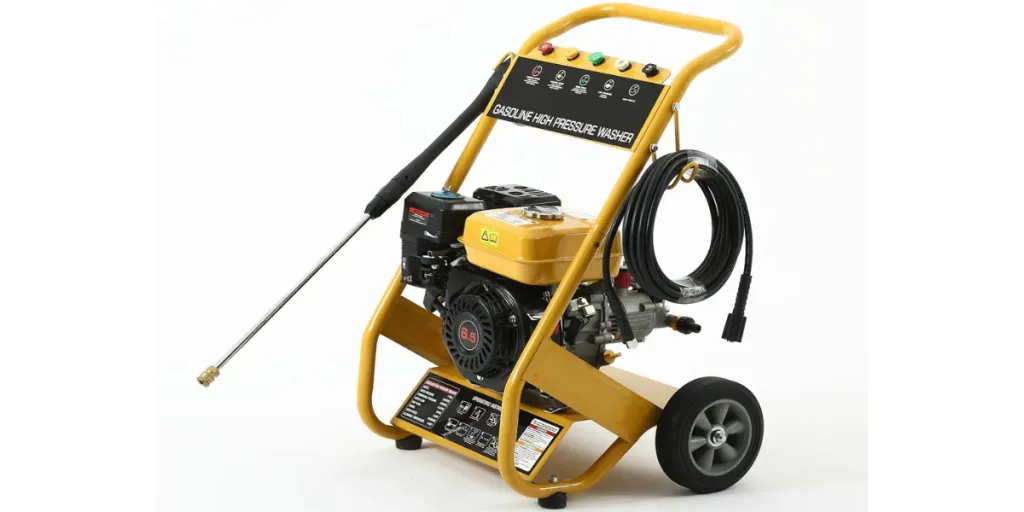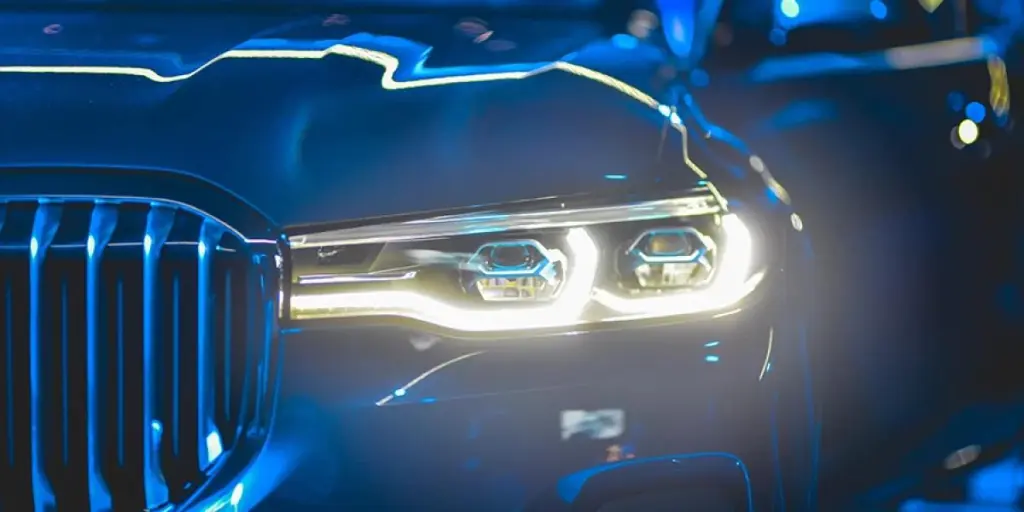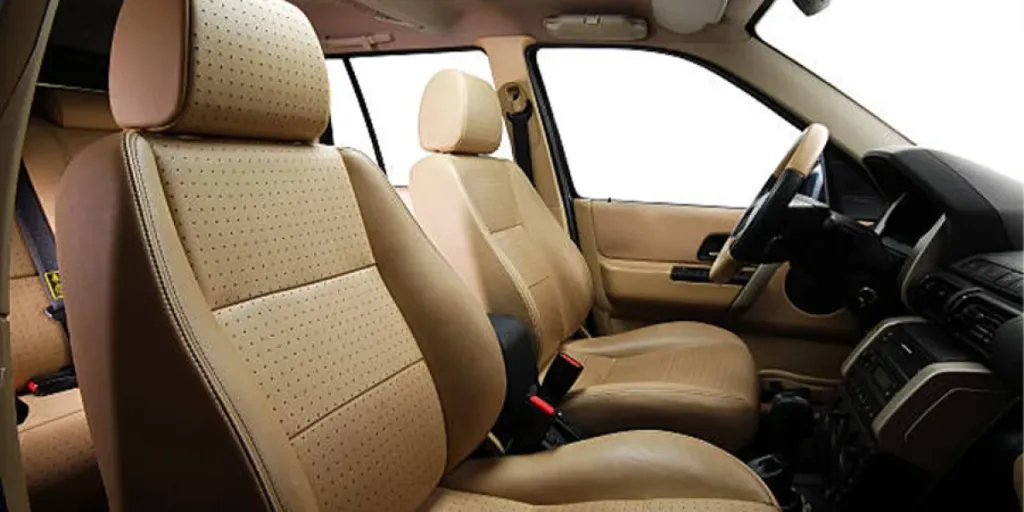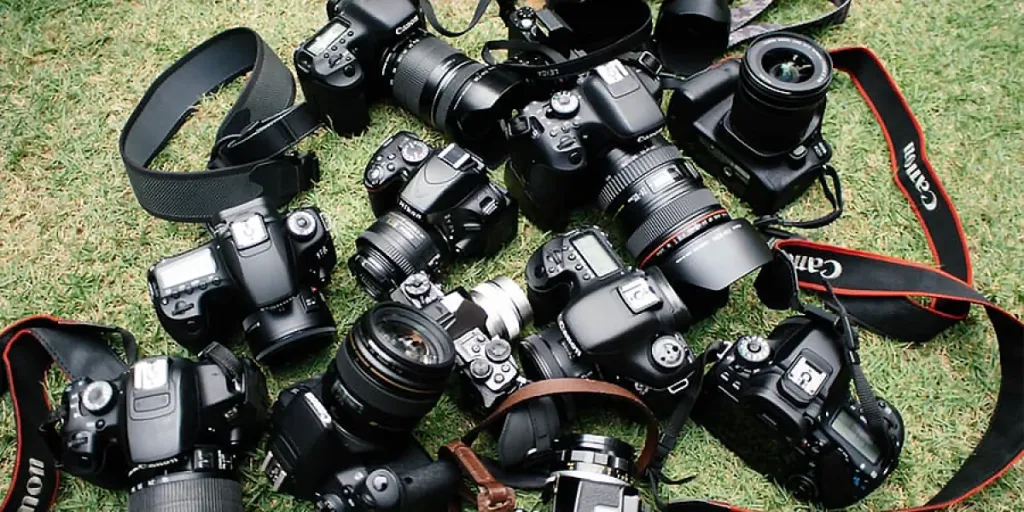Keeping things clean and well-maintained has become increasingly important in today’s fast-paced world. Pressure washers have emerged as invaluable tools for dealing with stubborn dirt and grime on outdoor surfaces and other challenging cleaning tasks.
Gas-powered pressure washers generally produce a pressure range of 2,000 to 2,800 psi, while electric models usually operate within a lower range of 1,300 to 1,700 psi. These powerful machines offer an efficient and effective way to rejuvenate a wide range of surfaces, restoring their sparkle and shine.
This guide will provide insights into the key factors to consider when selecting a pressure washer. It will also highlight the most popular types of pressure washers available on the market today.
So let’s get started!
Table of Contents
Market share of pressure washers
Types of pressure washers
How to select the right pressure washer
Summary
Market share of pressure washers
The pressure washer market has experienced remarkable growth in recent years, with the global market size reaching a substantial value of USD 2.7 billion in 2022. Looking ahead, industry experts at IMARC Group anticipate even further expansion, projecting the market to reach an estimated value of USD 3.3 billion by 2028. This upward trajectory reflects a healthy compound annual growth rate (CAGR) of 3.7% during the forecast period from 2023 to 2028.
The market is witnessing growth due to rapid urbanization, a heightened awareness of cleanliness and hygiene, and the emergence of professional cleaning startups globally. Pressure washers find extensive use in deep cleaning various surfaces, such as patios, roofs, walls, home exteriors, roads, and gardens, leading to increased adoption in the commercial sector. Additionally, the market benefits from the widespread acceptance of electric pressure washers.
Types of pressure washers
1. Electric pressure washers
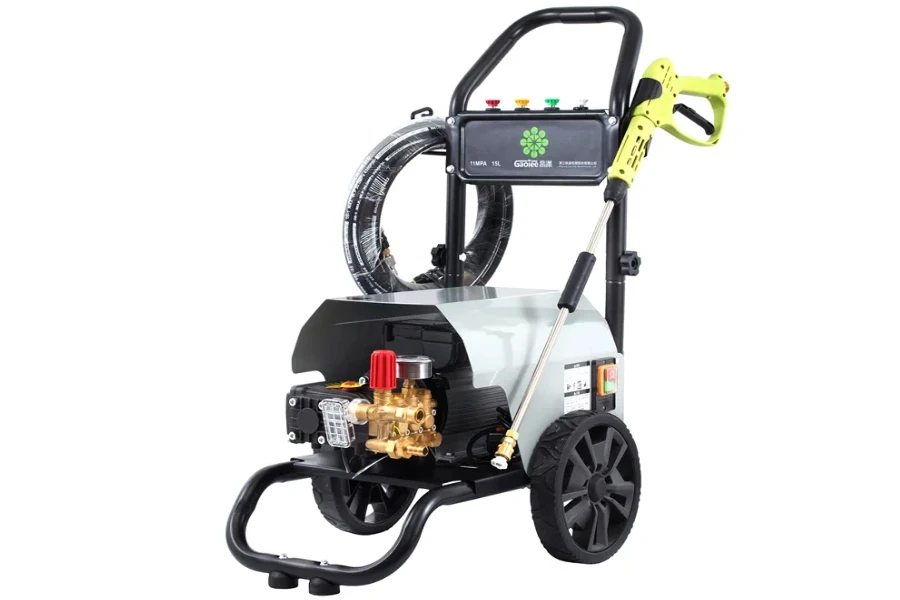
Electric pressure washers are popular for tackling light to moderate cleaning tasks. These machines have a pressure range of around 1,000 to 2,500 PSI and a 1 to 2.5 GPM flow rate.
Conditions of use
- Ensure the availability of a nearby power source to connect the pressure washer.
- Use only with proper grounding to prevent electrical hazards.
- Avoid using extension cords unless they are rated for the appliance’s power requirements.
- Do not operate the pressure washer in wet conditions to prevent electrical accidents.
- Use appropriate nozzles and attachments suitable for the task at hand.
- Avoid spraying the pressure washer on electrical outlets or components.
Pros
- Convenience and portability
- Environmentally friendly
- Quieter operation
- Lower maintenance requirements
Cons
- Less power of around 1.34 to 4 HP compared to gas-powered models, which have 2 to 10 HP
- Limited mobility due to power cord
- Not suitable for heavy-duty tasks
2. Gas pressure washers
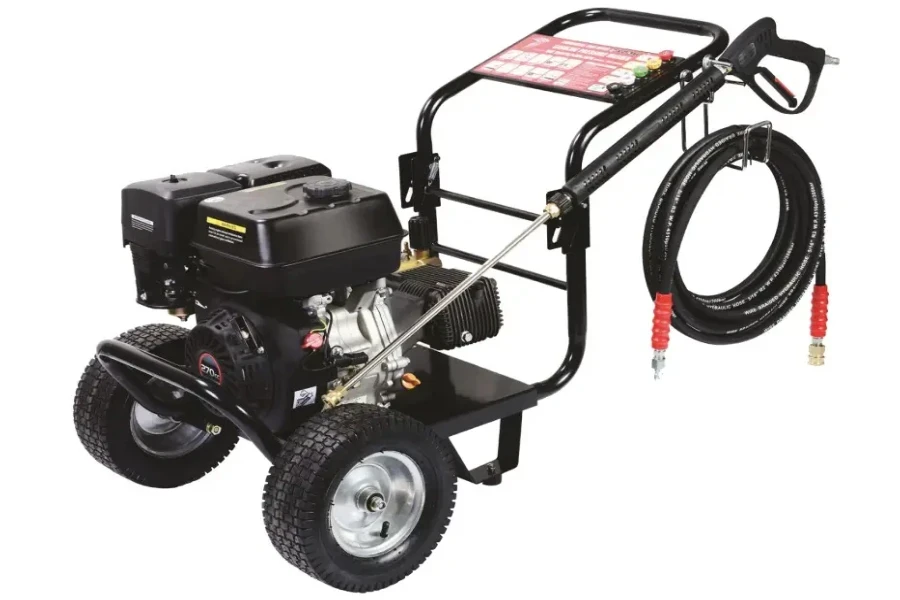
Gas pressure washers are a robust option for heavy-duty cleaning tasks. These machines have greater power of between 2 HP to 10 HP, which is more than that for electric models that range from 1000 watts (1.34 HP) to 3000 watts (4 HP). With their higher pressure of around 2,000 to 4,000 PSI and water flow rates of 2 to 4 GPM, gas pressure washers excel at tackling larger surfaces such as driveways, fences, and commercial buildings.
Conditions of use
- Use in well-ventilated areas to prevent carbon monoxide buildup.
- Check fuel and oil levels before operation.
- Keep the pressure washer on a stable surface during use.
- Allow the engine to cool before refueling.
- Regularly inspect and maintain the engine, pump, and other components.
- Follow the manufacturer’s guidelines for pressure and flow settings.
Pros
- Higher pressure and power output for heavy-duty tasks
- Greater mobility and no dependency on power cords
- Suitable for large areas and remote locations without electricity
- Faster cleaning of tough stains and dirt
Cons
- Noisier operation compared to electric models
- Higher emissions and environmental impact
- More significant maintenance requirements
- They are heavier and bulkier, making them less portable
3. Commercial pressure washers
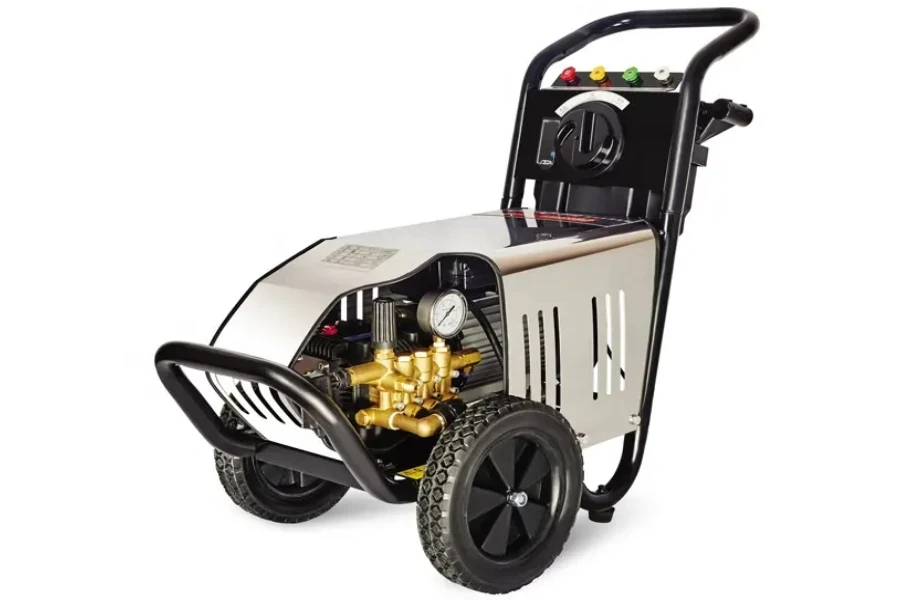
Commercial pressure washers are meticulously crafted to cater to the demands of professionals and industries that necessitate formidable cleaning prowess. These industrious machines are purpose-built to withstand unrelenting and challenging cleaning endeavors. Outfitted with potent high-pressure pumps and robust constituents, commercial pressure washers truly shine when confronted with arduous tasks such as eradicating graffiti, obliterating oil stains, and purifying industrial machinery.
What distinguishes their performance from other high-pressure water guns is their unyielding durability and capability to deliver powerful cleaning across demanding scenarios consistently.
Moreover, the adaptability of commercial pressure washers is further amplified by the availability of both electric and gas-powered variants, accommodating diverse applications and varying power preferences. This tailored focus on durability, power, and adaptability signifies a significant advancement over their counterparts, ensuring that the upgraded performance meets the rigorous requirements of professional cleaning needs.
How to select the right pressure washer in 2023
1. Cost
Pressure washers vary in price depending on brand, power, and features. Electric pressure washers’ prices can range from USD 100 to USD 400 or more for consumer-grade models, and high-end washers can go beyond USD 500. Gas pressure washers start from USD 250 and can go up to USD 1,000 or more for heavy-duty professional models. Commercial pressure washers start around USD 1,000 and can go up to USD 10,000 or higher.
2. Pressure rating
Pressure rating is measured in pounds per square inch (PSI), indicating the machine’s cleaning power. Electric pressure washers typically range from 1300 to 3000 PSI, gas pressure washers start at around 2000 PSI. They can exceed 4000 PSI, while commercial pressure washers often begin at 3000 PSI and can go beyond 5000 PSI, catering to heavy-duty cleaning tasks.
Varying tasks require specific PSI levels, and different types of pressure washers also feature distinct PSI ranges. When dealing with lighter duties like washing vehicles or cleaning outdoor furniture, a pressure washer with a lower PSI rating, usually between 1300 and 1800 PSI, could prove effective. On the other hand, for tougher assignments such as revitalizing driveways or combating entrenched grime, a higher PSI rating, typically spanning 2000 to 3000 PSI, becomes essential for achieving the best outcomes.
3. Water flow rate
The water flow rate directly affects the cleaning efficiency of the pressure washer. Higher gallons per minute (GPM) indicates a greater volume of water being discharged, which aids in flushing away debris and improving the effectiveness of the cleaning process.
Electric pressure washers typically offer a flow of 1.2 to 1.8 gallons per minute (GPM), gas pressure washers tend to provide 2.0 to 3.5 GPM, and commercial pressure washers boast higher flow rates of 3.5 to 5.0 GPM or more.
A lower GPM of 1.2 to 1.8 may be sufficient for lighter tasks like cleaning vehicles, fences, furniture, and grills. However, larger surfaces or more demanding cleaning jobs, such as cleaning driveways or removing tough grime, may necessitate a higher GPM, typically in the range of 2.0 to 3.5 GPM or more.
4. Durability
Durability affects the machine’s lifespan and ability to withstand demanding tasks. The typical lifespan ranges of pressure washers is approximately 5 to 10 years for electric models, 7 to 12 years for gas-powered variants, and 10 to 15 years for commercial-grade units.
Electric pressure washers are generally less durable compared to gas and commercial models. They are designed for lighter household use and may not withstand frequent heavy-duty cleaning. Gas pressure washers are durable and built to handle more challenging tasks and more extended usage. They are engineered with robust components to withstand the rigors of heavy cleaning.
Commercial pressure washers are durable, crafted explicitly for professional and industrial applications, and built to endure continuous, intense usage. The materials and construction of commercial models are of higher quality, contributing to their extended lifespan and reliability.
Summary
Selecting a suitable pressure washer in 2023 requires careful consideration of cost, type, pressure rating, water flow rate, portability, and durability. By evaluating these aspects, you can choose a pressure washer that fits your budget, cleaning needs, and personal preferences. Visit Alibaba.com to purchase quality pressure washers from a range of different brands and suppliers.
